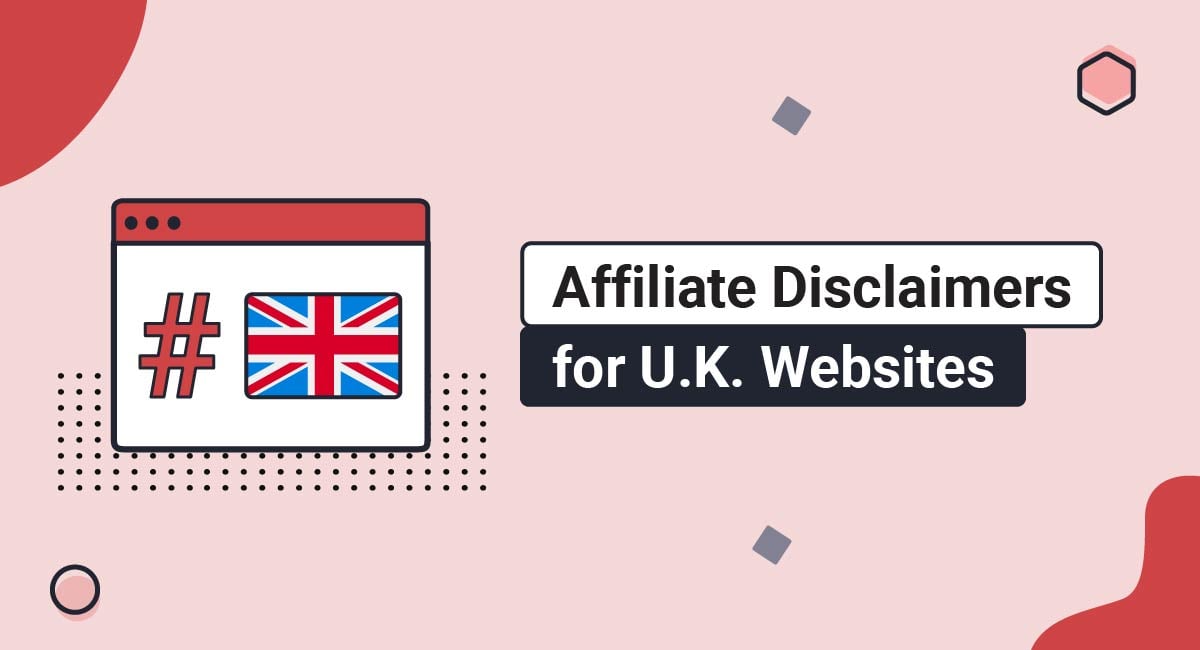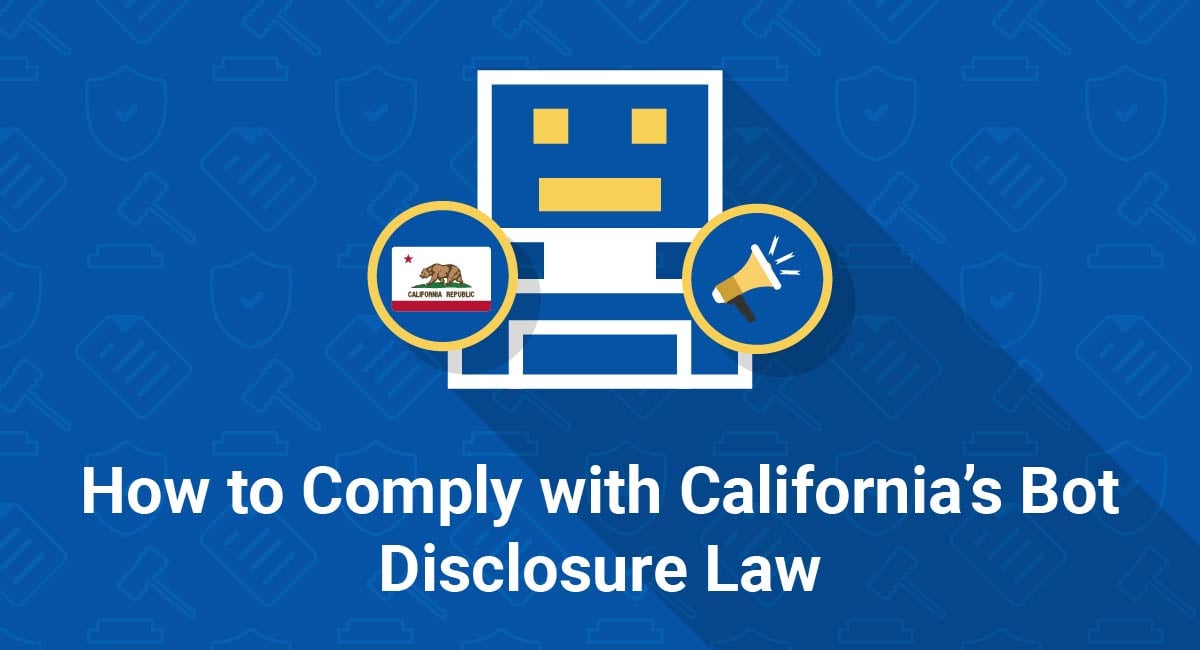Many website owners are aware of the Federal Trade Commission (FTC) guidelines regarding affiliate disclaimers. They often overlook the fact that these disclaimers are also required in the U.K. Looking over review sites that are exclusive to the U.K., many do not contain an Affiliate Disclaimer and that can lead to criminal penalties.
Fortunately, the U.K. law is much more general than FTC guidelines and chances are if you meet the FTC guidelines you will also meet the requirements for affiliate links used on your U.K. website. You still need to be cautious because the penalties are severe if authorities determine your affiliate website misleads customers.
Here is how to be upfront about any affiliate links and assure you present a truthful website.
Our Disclaimer Generator can generate a legal disclaimer for your business, website or mobile app. Just follow these steps:
-
At Step 1, select where your Disclaimer will be used.
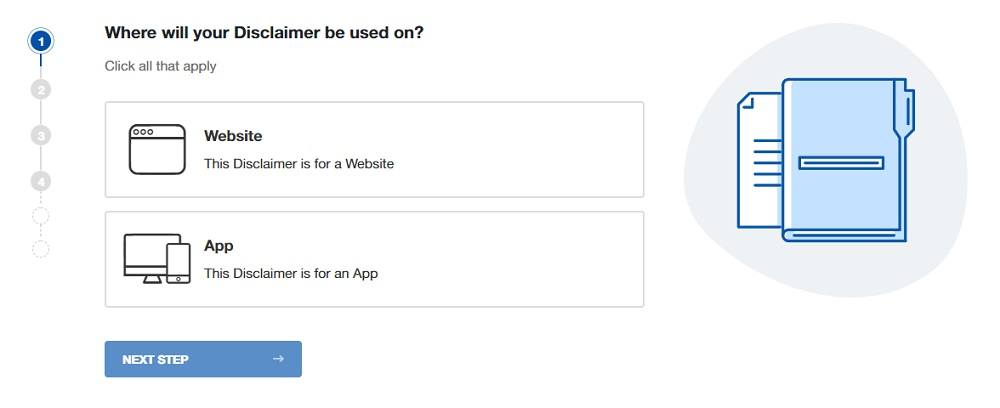
-
At Step 2, add in information about your website/app and business.
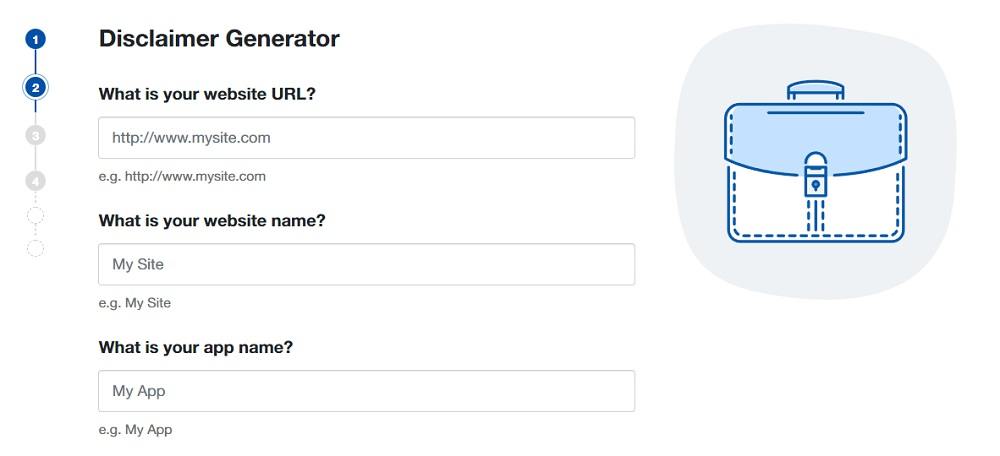
-
Answer some questions about your business practices.
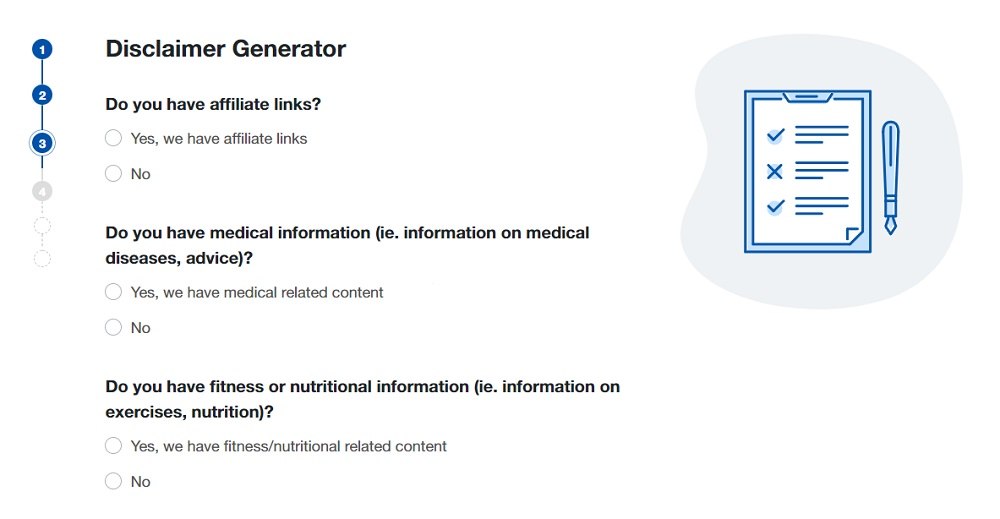
-
Enter an email address where you'd like to receive your Disclaimer and click "Generate."
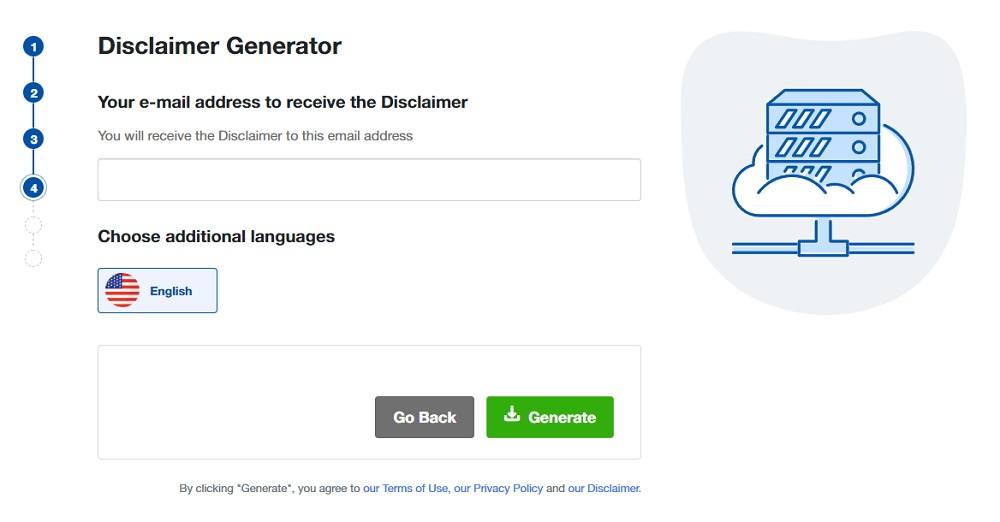
Done! You'll be able to instantly access and download your new Disclaimer.
- 1. What is an Affiliate Disclaimer?
- 2. What are the Relevant U.K. Consumer Protection Regulations?
- 3. What are the Penalties for Not Having an Affiliate Disclaimer?
- 4. What are the Requirements for U.K. Affiliate Disclaimers?
- 5. Examples of Writing and Displaying Compliant U.K. Affiliate Disclaimers
- 6. Summary
What is an Affiliate Disclaimer?
An affiliate disclaimer is a short statement that lets visitors to a website know that certain links on the site, if used to make purchases, will result in the owner of the site receiving some sort of material compensation.
Many merchants, including Amazon, allow for affiliate relationships where a website owner can link to products and receive a commission when a user purchases it. This is a popular way for people to earning money on blogs and review sites.
Laws in the U.S. address these marketing strategies by requiring website owners and bloggers to disclose these relationships through an Affiliate Disclaimer.
The U.K. endorses the same practice but more subtly through its current consumer protection laws.
What are the Relevant U.K. Consumer Protection Regulations?
In the U.K., the requirements for an affiliate disclaimer arise from the Consumer Protection from Unfair Trading Regulations 2008 (CPUTR 2008). Regulation Five under the act specifically prohibits providing misleading information to consumers.
This includes failing to inform consumers, too. The Affiliate Disclaimer reveals that your website is an affiliate site and consumers who use the links are providing commissions to you.
Since there is a likelihood that these endorsements and links may influence consumer purchasing decisions, the web community concluded that Affiliate Disclaimers are necessary to promote truthful advertising and avoid trouble with trading regulations.
These rules apply to anyone who is a "trader" and that includes those marketing to U.K. customers from other countries.
Many website owners and bloggers who use affiliate links already have a disclaimer due to the U.S. FTC regulations. It is already apparent that if you use affiliate links to purchase U.S. products, you must have the Affiliate Disclaimer on that page. The same rules also applie if your website either reaches U.K. customers or you provide an affiliate link to a product limited to the U.K.
What are the Penalties for Not Having an Affiliate Disclaimer?
The CPUTR 2008 contains criminal penalties for website owners who violate the act. When you fail to provide an Affiliate Disclaimer, your offense will fall under practices which impair a consumer's decision making ability or providing misleading information by omitting essential facts.
A first offense is met with a caution. U.K. authorities are not interested in punishing blog or website owners who make a first-time error.
Once you face a citation, you need to act quickly. Prosecution and fines are reserved for persistent violations, but if you fail to follow warnings, you can easily fall under that category. Because of this, it's important to know how to draft an Affiliate Disclaimer that keeps your website in line with U.K. law.
What are the Requirements for U.K. Affiliate Disclaimers?
While in the US the FTC has specific guidelines for Affiliate Disclaimers, there is no set policy in the U.K. when it comes to affiliate disclaimers. It was the web industry that set its own standards and offered resources to consumers and website owners to assure compliance.
Transparency is the main goal of these standards. Not only does it prevent a website from being vague about affiliate relationships, but it is considered more ethical.
Here are some recommendations for U.K. affiliate disclaimers:
- Place the disclaimer on every page where the site promotes a product or links to it in order to generate commissions.
- Make the Affiliate Disclaimer visible on first sight rather than forcing users to scroll down the page.
- Display your real full name or trade name, but no aliases.
Examples of Writing and Displaying Compliant U.K. Affiliate Disclaimers
Websites and bloggers take many approaches to being upfront about their affiliate links. They offer disclaimers in plain language and provide contact information for users who have questions. They also display them in places and in ways that users are sure to see.
Here's a basic affiliate disclaimer template that shows the name of the trader benefiting from the affiliate relationship and explains that commissions are involved. The disclaimer includes space to add a link to a place where consumers can find out more information:

You can use a disclaimer badge that helps the disclaimer information stand out on any webpage, ensuring users have a high chance of seeing it. Here's an example:
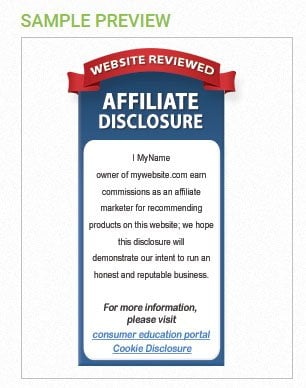
Some websites opt for lots of detail, and thus have their affiliate disclaimers on a separate webpage linked to a site footer or menu. The following example uses plain language but offers a lot of details to be upfront with customers. This disclaimer covers all the points listed above but there is no link to external pages:
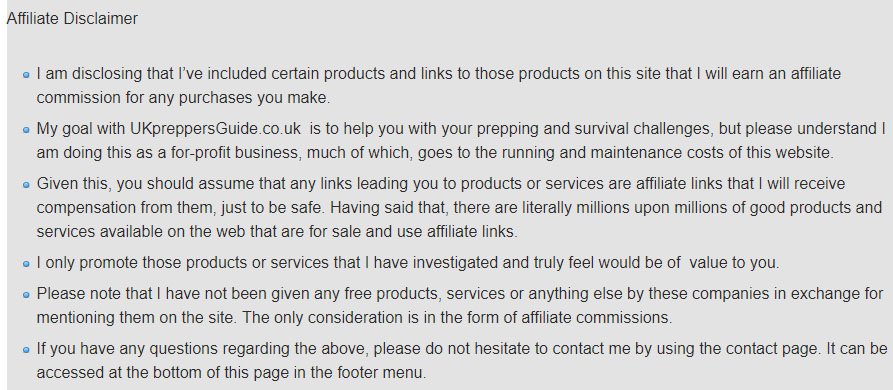
Affiliate Disclaimers can also be informal. Take, for example, a product review site that often receives free items to try out and review. This can be explained in a disclaimer, also noting any inclusion in programs such as the Amazon EU program Affiliate Disclaimer:
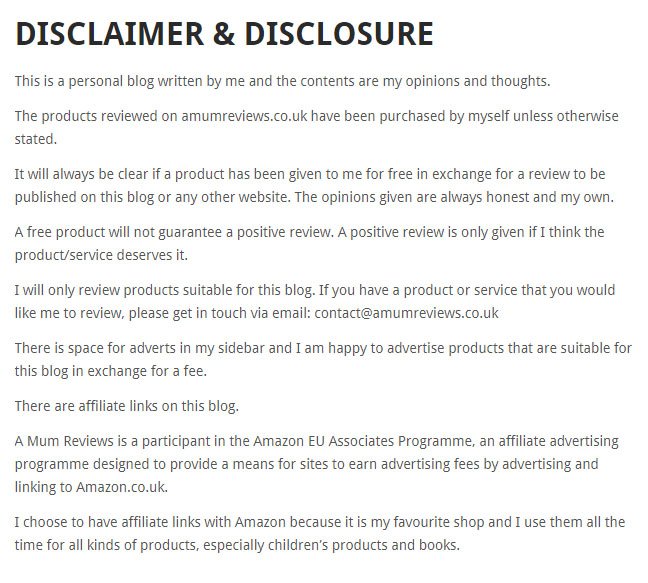
Websites that exist primarily on affiliate relationships have more involved disclaimers. For example, consider a business that maintains several websites which feature products from a variety of third parties.
Here's an example of an exceptionally detailed affiliate disclaimer that explains how a business/website profits from promotional campaigns while listing its affiliates. It focuses primarily on the FTC rules, which helps it meet the U.K. legal requirements as well:
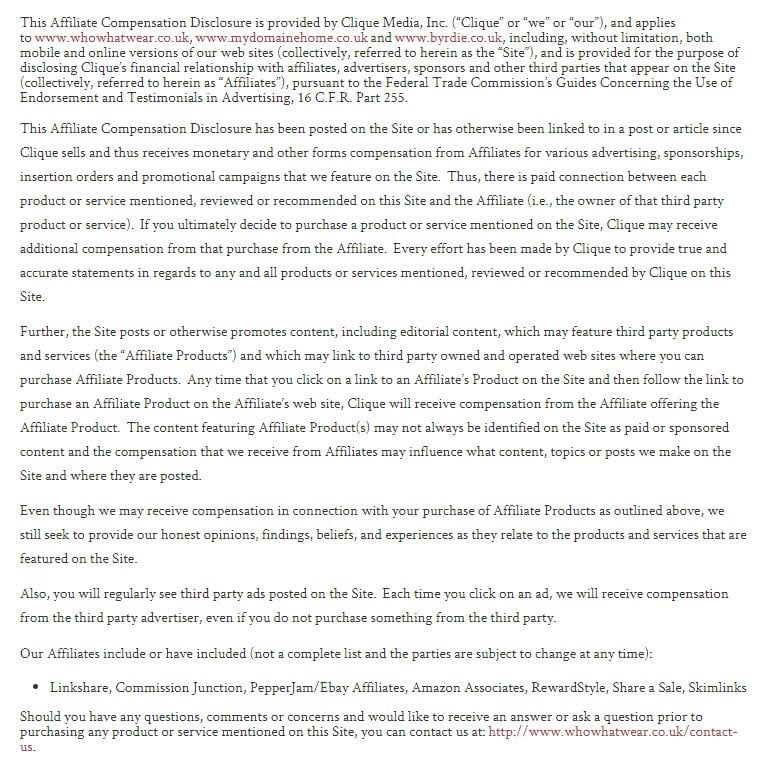
If you're following the US FTC rules and are fully compliant, you likely also meet the standards for the U.K. consumer protection laws. You just need to know that even if you are endorsing or linking to U.K.-only products, your responsibility to post an Affiliate Disclaimer remains.
By following these guidelines and examples, you can meet that requirement and benefit from affiliate relationships in both the U.S. and U.K.
Summary
If you engage in affiliate marketing within the U.K. or to U.K.-based consumers, you will need to comply with relevant regulations.
Make sure you disclose that you engage in affiliate marketing, and make your disclaimer easy to notice. Consider using formatting like a badge icon or bold text to make the disclaimer stand out.
If your disclaimer is long, you can house it on a separate webpage and link it to your site's footer. However, you should still include a short summary of the affiliate disclaimer or clearly-labeled link to the full disclaimer somewhere near the actual affiliate links themselves.

Comprehensive compliance starts with a Privacy Policy.
Comply with the law with our agreements, policies, and consent banners. Everything is included.
